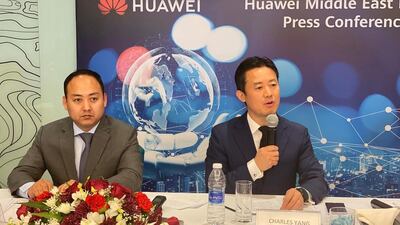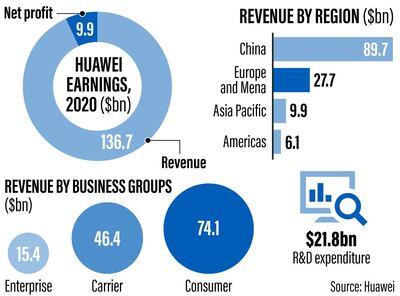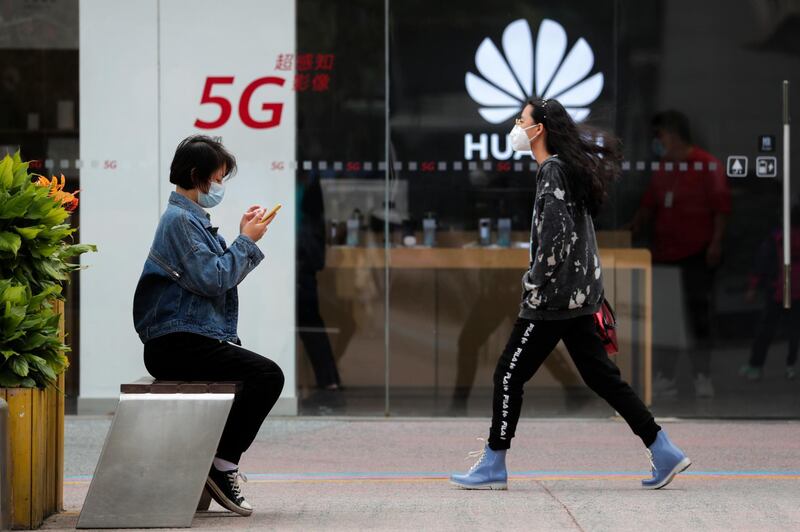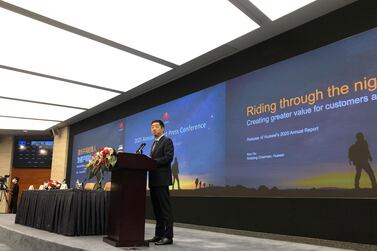Chinese telecoms manufacturer Huawei aims to capitalise on the fast-evolving industry for self-driving electric vehicles as the company diversifies its offerings through new business lines.
“With the wider roll-out of 5G connectivity in the region, we see huge scope in the area of electric and autonomous vehicles,” said Charles Yang, the company’s Middle East president, on Sunday.
With a much lower latency rate compared with 4G, a 5G network will "support more sensors, connected devices, reduce vehicle reaction times, make them smarter, reduce the number of accidents and cut down emission levels”, he said.
A 5G network promises internet speeds of up to 1.2 gigabits per second, which will gradually reach 10 gigabits per second – more than 100 times faster than 4G.
Huawei is already working with various car makers worldwide, including German manufacturers Audi, Volkswagen and Chinese car producer Baic Group.
Last week, it unveiled a self-driving electric car with Chinese manufacturer Arcfox. The vehicle is set for commercial release soon.
“We are already facilitating top car makers with our technology and equipment to develop the future vehicle technology," said Mr Yang.
"Given the GCC governments’ push towards green energy, we see a lot of potential.”

The Covid-19 pandemic has intensified the world's focus on making the car industry greener.
Global electric vehicle sales picked up last year, rising by 43 per cent to more than 3.2 million, according to Swedish data company EV-volumes.com.
However, US sanctions have dented Huawei’s smartphone business.
The company, which used to be among the top three smartphone manufacturers until the third quarter of last year, is now the world’s sixth-biggest smartphone maker with an 8 per cent market share, according to Counterpoint Research.
Despite operational difficulties brought about by the coronavirus outbreak and US sanctions, Huawei aims for strong growth in the Middle East this year.
“The Middle East region has continued to perform well despite external pressures ... we expect the same growth momentum this year,” said Mr Yang, without disclosing Huawei’s regional revenue or profit.
The GCC region is leading the world in terms of 5G, Mr Yang said. His company expects a sharp increase in its carrier business, which includes the cloud industry and 5G networks, this year.
Huawei earned $27.7 billion from its sales in Europe, the Middle East and Africa last year, about 20.2 per cent of its global revenue.
The company's annual revenue grew by 3.8 per cent to $136.7bn and net profit increased 3.2 per cent to $9.9bn.

While US-led sanctions created supply chain disruptions, Mr Yang said the company ensured a smooth supply of its products by using its own stock of chips.
Huawei, which employs more than 197,000 people, is engaged in a trade dispute with the US government, which views the company as a national security threat.
The telecoms company has repeatedly rejected claims that its products could be used for spying.
“We are working very closely with the governments of the UAE, Saudi Arabia and other countries in the region. We regularly invite global cyber experts to discuss the issue of security,” said Mr Yang.
“But cyber security should not be the responsibility of one company ... we are doing our part quite effectively and spending huge amounts to ensure the security of our products and services.”
The telecoms company has more than 1 billion connected devices and 730 million Huawei smartphone users around the world.
It deals with more than 1,500 operators in more than 170 countries.








